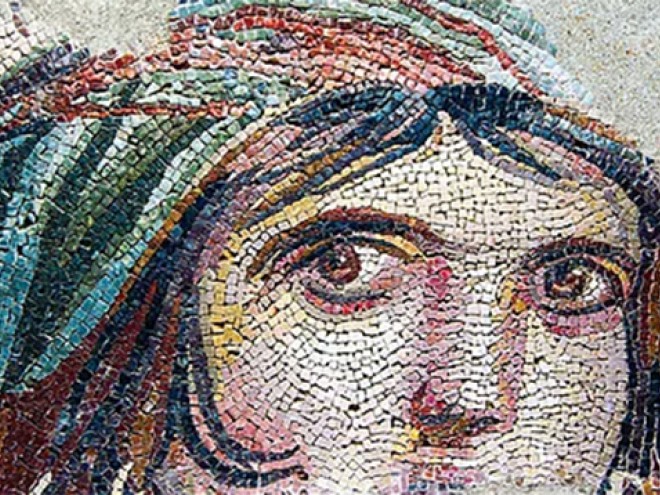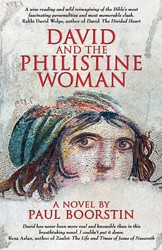
Earlier this week, Paul Boorstin wrote about why he decided to tell David’s story in his novel David and the Philistine Woman and how his background as a documentary film-maker impacted upon his writing. In his final post, Boorstin explores the women who stood behind David. He has been blogging here for Jewish Book Council’s Visiting Scribe series all week.
I believe that the role of women as a moral anchor in the Hebrew Bible cannot be overstated. Of course, that role was not as openly discussed in ancient times as it is today. When I set out to reimagine the story of David and Goliath in David and the Philistine Woman, I saw the part played by women as crucial.
On the surface, the epic clash of the Israelites and the Philistines does not involve women. And yet, my book is as much about extraordinary women as it is about David’s own remarkable journey. As I envision his story, young David would never have been able to survive his rite of passage from shepherd to king, if it wasn’t for the strong women who offered their support and risked their lives for him.
First, I decided to include David’s mother. I was surprised to learn that her name is not even mentioned in the Hebrew Bible, though it is given as “Nitzevet” in the Talmud. Knowing from the biblical text how David’s father, Jesse, favored his older brothers over him, it was easy to imagine that David’s firm moral grounding came from Nitzevet, a strong and loving mother. Despite her omission from the biblical account, I wanted to show how I believe that her influence on David would have been significant.
I was also fascinated by Saul’s youngest daughter, Michal. She later becomes David’s first wife, and is the only woman in the Hebrew Bible of whom it is explicitly said that she loves a man. (I Samuel, 18:20): “Now Saul’s daughter Michal loved David.” Though Michal never bears David a child, the Bible recounts how she saves his life, helping him to escape Saul’s assassins (I Samuel, 19:11). Michal’s actions in my novel illustrate her heartfelt devotion to him despite mortal danger.
And then, there is perhaps the book’s biggest surprise: Nara — the “Philistine woman” of the title. I was so intrigued by the notion of a female Philistine protagonist, that Nara was the first character I conceived. While Goliath the Philistine is one of history’s most despised villains, I wanted to show that this much-maligned people also could have fostered heroes. And why not a woman?
As depicted in the novel, Nara is the tallest, strongest young Philistine woman. She is forced to marry Goliath to bear him warrior sons. But Goliath abuses her. Meanwhile, young David is destined to face Goliath in combat. Though they are from different worlds, David and Nara help each other to survive against impossible odds. It is a message of hope for our own divisive times. Together, David and Nara share a bond that is more profound than physical love — their mission to help their warring peoples survive to live in peace.
In David and the Philistine Woman, the women of David’s time, like women today, risk their lives for what they believe is right, whether or not they get the credit they deserve.
Learn more about Paul Boorstin here.
Paul Boorstin is an award-winning writer and filmmaker whose TV documentaries have examined Biblical historical and environmental subjects for A&E Discovery the History Channel and National Geographic. His screenplays have been produced as motion pictures by Paramount and 20th Century Fox. He is also a blogger for the Huffington Post and a contributor to the Los Angeles Times.
For Paul’s presentation, his wife Sharon, a past JBC cookbook author, has created recipes for a “David’s Feast” featuring the authentic foods and flavors of David’s time.



